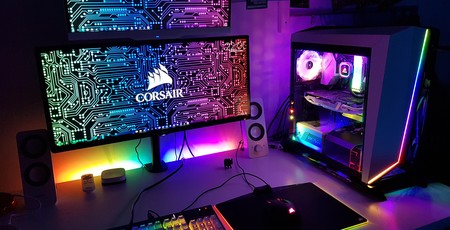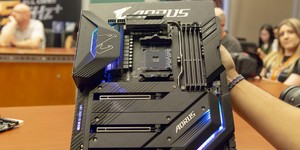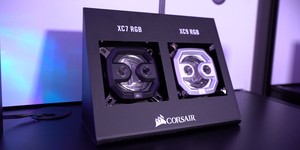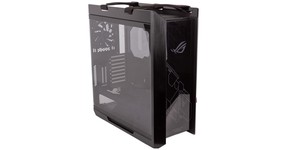Are manufacturer ecosystems growing too large?
June 27, 2019 | 13:30
Companies: #asus #corsair #gigabyte #thermaltake

The PC hardware scene has evolved a lot in the last few years. Naturally, there's been the aRGie-Bargie revolution along with the rise of mainstream water-cooling, but there's also been another shift, one that's been a long time in the making. It wasn't a long time ago when building your own PC meant you had to shop around any number of manufacturers, each supplying one or perhaps two components in the system. For example, you might have picked up a motherboard and graphics card from Asus, your case, memory, and power supply from Corsair, a Western Digital HDD, an OCZ SSD (I still regret this...), a cooler plus fans from Noctua, and so on. Now, obviously one still can do that, but the times have a changed, and many of those companies now have significant product stacks. Corsair sells practically everything bar motherboards and GPUs (but for how long?), Thermaltake is almost no different, and NZXT even has a branded motherboard.
Computex 2019 further showed how manufacturers are keenly attempting to become one-stop-shops for all things hardware. Corsair's launch of Hydro X finally cemented its presence within the custom water-cooling world, Thermaltake strengthened its recent branching into memory with ToughRAM, Asus added a host of new PSUs to the mix, and Raijintek went all-out to prove itself as a viable custom and AIO cooling option.
It does seem like a natural progression, especially when RGB is thrown into the mix, as everybody knows how challenging mixing up different implementations of the tech can be at times. It can also be quite the marketing boon to say you have everything and that all your product features will work across multiple platforms. Corsair and Thermaltake especially have worked very hard at this over the last couple years, with both trying to tie together all their various products and lighting under all-encompassing software packages. There's undeniably an appeal to being able to synchronise your fans, memory, water blocks, and even peripherals to be consistent and share effects.
So, why my edgy title? As with all things, there do appear to be a few catches here. From my niche perspective as a modder who does sponsored projects, it's actually becoming a bit of a nightmare to coordinate builds. Since every company now has fingers in all the pies, trying to tie different manufacturers together can be really tricky, as there are conflicts of interest at every turn. On one hand, it's pretty simple how you can source the vast majority of the parts from one place at times, but then as soon as you wish to do a project with, say, a different case manufacturer, you're locked out of that ecosystem entirely, and suddenly it's the Wild West again. What entails is a game of cat and mouse where you're desperately trying to tie up loose ends without stepping on toes.
A more mainstream worry could be that growing ecosystems can result in a jack-of-all-trades approach as the ecosystems become increasingly unwieldy. A company might be renowned for producing high quality parts in one field, but it's not at all guaranteed that it will be able to do it across the board. You see this quite often with water-cooling, in fact; no single manufacturer produces the best products from all angles. Similarly, there's always the risk that with larger ecosystems, more and more features could end up being locked to that particular brand, which stands in opposition to the cross-compatibility the PC ecosystem as a whole is known for. We've seen this already with RGB, so I don't consider it out of the realm of possibility for other features down the line.
What are your thoughts?

MSI MPG Velox 100R Chassis Review
October 14 2021 | 15:04








Want to comment? Please log in.